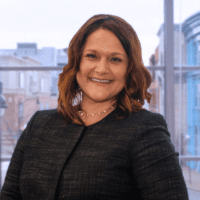In the midst of mandatory ten day school closures, questions arise as to what affect, if any does the closure have on special education timelines. Currently, unless a waiver is issued, the state and federal laws do not allow for exceptions to the required timelines for evaluations, re-evaluations, IEP development, and ESY determinations.
In response to anticipated school closures, the U.S. Department of Education issued a Q & A document. This document outlined school districts’ responsibilities on providing services to children with disabilities during the pandemic. This guidance document did not comment regarding IEP and 504 timelines. However, in response to the H1N1 virus the USDOE refused to waive any timeline requirements.
Proper planning on your school district’s and case manager’s part will be essential in determining how your school district is required to act during school closures or if schools are closed for a lengthy period of time beyond 10 school days.
The Office for Civil Rights issued guidance recognizing that school districts and postsecondary schools have significant latitude and authority to take necessary actions to protect the health, safety, and welfare of students and school staff. If a school district closes its schools and does not provide any educational services to the general student population, then a school would not be required to provide services to students with disabilities during that same period of time. In this March 16, 2020 guidance OCR states that IEP Teams are not required to meet in person while schools are closed. Many districts are holding IEP team meetings through video conferencing or seeking revisions through the amendment process.
As to evaluations, OCR provides the following: if an evaluation of a student with a disability requires a face-to-face assessment or observation, the evaluation would need to be delayed until school reopens. Evaluations and re-evaluations that do not require face-to-face assessments or observations may take place while schools are closed, so long as a student’s parent or legal guardian consents.
School district personnel should look at their evaluation and IEP timelines to determine which items may expire during the next few weeks/months of the 2019/2020 school year. This guidance also applies to Section 504/Chapter 15 plans. Case managers should review which students are due for meetings, etc.
If the District is concerned with completing initial evaluations for determination of eligibility, consider issuing a NOREP providing notice to parents of the reasons for delay caused by the school closure. If pieces of the evaluation cannot be conducted because school is closed, the evaluation would need to be delayed and a NOREP/PWN should be sent. If you have not yet conducted the evaluation and assessments, another option to consider is waiving the reevaluation with parental consent.
Once school resumes, the school must return to providing special education and related services to students with disabilities. Any lapsed evaluation, re-evaluation or IEP should be scheduled for completion upon the return to school.
Additionally, IEP teams will need to review the impact of the delay in service caused by the closure and whether the delay created a loss of educational benefit. Review of the impact of delay may create a change in the student’s need for ESY based on the length of time of school closure. IEP teams will need to review on a case-by-case basis whether compensatory services are required as a provision of FAPE. If the IEP team determines compensatory education services are required document the decision in the IEP and issue a NOREP.
This guidance is provided as the response to the pandemic changes on an hourly if not daily basis. MBM will continue to update you on any state or federal directives issued with regard to your responsibilities to special education students.
If your School District requires guidance during the ongoing coronavirus pandemic, you are encouraged to contact our office so we can discuss your options under the law. Different School Districts may have different responsibilities and requirements and it is best to discuss these issues on a case-by-case basis so your District is appropriately protected.

